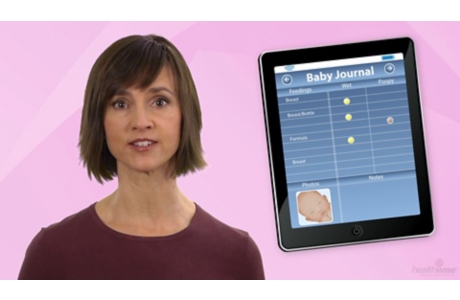Breastfeeding When You Have Diabetes
Getting Started
Breastfeeding is good for you and your baby. Even with diabetes, you can have the same chance of success with breastfeeding as anyone else. Here are some tips for eating a healthy diet when you're breastfeeding.
- Get help from a registered dietitian.
It's important to eat a nutritious diet. A registered dietitian can help you tailor your meal plan to meet your nutritional needs, your target blood sugar range, and your weight goals.
- Be prepared for some changes.
Taking care of a new baby may change when and how you eat. So you might need to test your blood sugar more often and adjust your diabetes medicines. Your diabetes care team can help you plan for these changes.
- Eat healthy snacks to prevent low blood sugar.
Your body is using energy to make breast milk, so you might have more low blood sugars. Eat a snack before or while you nurse or before naps to prevent low blood sugar. Some examples of healthy snacks include a bagel with cream cheese, a meat sandwich, crackers with cheese or cottage cheese, a hard-boiled egg and toast, fruit salad, and a dried fruit and nut mix.
- Drink plenty of fluids.
Good choices are water and other sugar-free drinks without caffeine. If you drink milk and juice to meet your fluid needs, be sure to count them in your meal plan.
- Know the facts about drinking alcohol.
It's best not to drink alcohol when you're breastfeeding. Alcohol may increase your risk of low blood sugar (if you take insulin) and prevent you from drinking more nutritious beverages. If you choose to have a drink now and then, have only one drink, and limit the number of occasions that you have a drink. Wait to breastfeed at least 2 hours after you have a drink to reduce the amount of alcohol the baby may get in the milk.
Related Information
Credits
Current as of: July 15, 2025
Author: Ignite Healthwise, LLC Staff
Clinical Review Board
All Ignite Healthwise, LLC education is reviewed by a team that includes physicians, nurses, advanced practitioners, registered dieticians, and other healthcare professionals.
Current as of: July 15, 2025
Author: Ignite Healthwise, LLC Staff
Clinical Review Board
All Ignite Healthwise, LLC education is reviewed by a team that includes physicians, nurses, advanced practitioners, registered dieticians, and other healthcare professionals.







